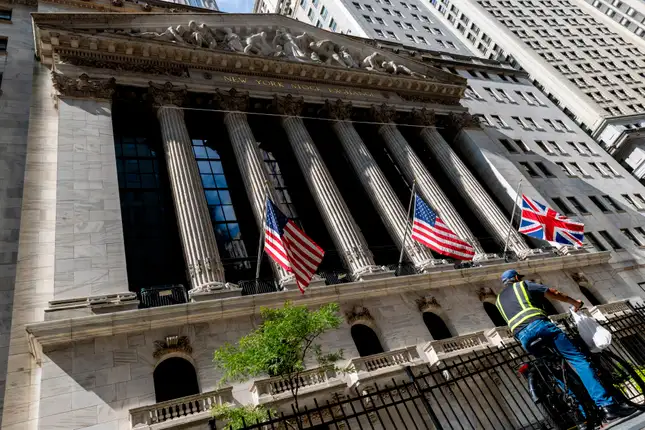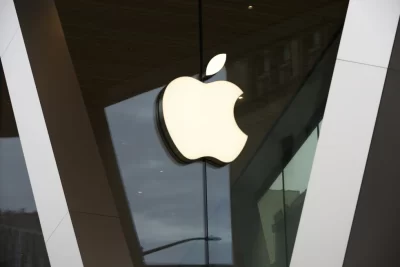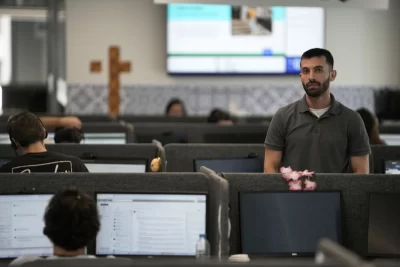
Stocks fell in afternoon trading on Wall Street Wednesday, continuing a weak stretch in a holiday-shortened week.
The S&P 500 fell 0.9% and is heading for weekly losses. The Dow Jones Industrial Average fell 234 points, or 0.7%, to 34,407 as of 12:28 p.m. Eastern. The Nasdaq fell 1.3%.
Big technology stocks fell and weighed on the market. Apple slipped 3.3%. Health care stocks had some of the broadest losses. Johnson & Johnson fell 1.3% and Pfizer shed 2.3%.
Several companies made big moves after reporting earnings and other updates. Roku surged 4.2% after giving investors an encouraging financial update and saying it would cut 10% of its staff. AeroVironment jumped 25.8% after the maker of unmanned aircrafts raised its sales forecast for the year.
Markets in Europe fell and markets in Asia were mixed.
Investors face a relatively quiet week as they come off the Labor Day holiday in the U.S. and a busy August.
The services sector in the U.S. remained healthy, according to a survey from The Institute for Supply Management.
The survey showed that the sector, which employs most Americans, grew at a faster pace than economists expected in August. The sector is among the biggest pieces of the U.S. economy and it has remained resilient throughout 2023 despite persistent inflation and rising interest rates squeezing consumers.
“That suggests there is still a tremendous amount of demand for the services sector,” said Tom Hainlin, national investment strategist at U.S. Bank Wealth Management.
Bond yields jumped following the report. The yield on the 10-year Treasury, which influences interest rates on mortgages and other loans, rose to 4.30% from about 4.25% just prior to the survey’s release.
The yield on the 2-year Treasury, which tracks expectations for the Federal Reserve, rose to 5.03% from 4.96% just prior to the survey’s results being released.
The dominant economic theme continues to be inflation and interest rates, which the Fed has boosted in an effort to bring down prices. Investors are hoping that the Fed might moderate interest rate increases going forward as inflation has been easing for months.
Wall Street expects the Fed to hold its benchmark interest rate steady at its next meeting later in September. Investors are mostly betting that the central bank will maintain that pause through the rest of the year. Economic updates last week on consumer confidence, jobs and inflation reinforced those hopes.
“It seems we’re all coalescing around a potential pause,” Hainlin said.
Inflation has been easing for months under the weight of the Fed’s aggressive rate hikes that started in 2022 and brought its main interest rate to the highest level since 2001. The policy raised concerns that the central bank might be too aggressive and hit the brakes on economic growth with enough force that the economy would be thrown into a recession.
A strong jobs market and consumer spending have propped up the broader economy and staved off a recession, so far. Wall Street will get several more economic updates on inflation and retail sales later in September ahead of the Fed’s next meeting.






